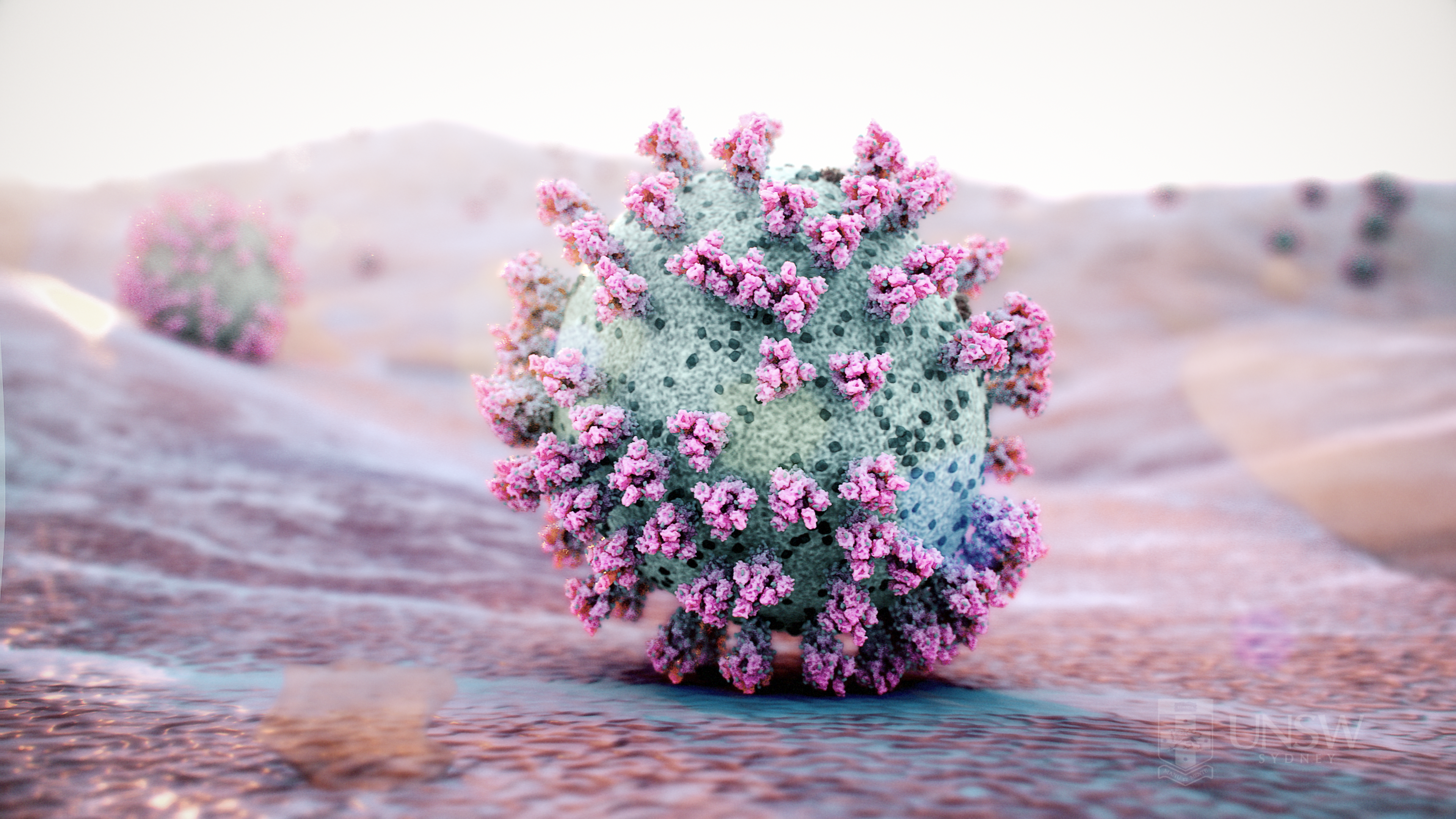
A 3D-visualisation of soap destroying the coronavirus is a poignant reminder that simply washing your hands can help stem the pandemic, UNSW academics say.
"With the threat of the second wave upon us, simple hygiene is something everyone can do to prevent the spread of the virus,” says Professor Pall Thordarson, from UNSW Science. “Soap can destroy the virus on your skin.”
The scientifically accurate simulation, a collaboration between UNSW Art & Design and UNSW Science, shows soap acting on contaminated skin covered with tiny coronavirus particles.
The simulation uses a cinematic approach and evocative animation to deliver a message that’s accessible to adults and children alike.
“One of the very few pieces of good news about this virus is that it’s actually very fragile – if you wash your hands with soap, the whole virus basically collapses like a house of cards,” Prof. Thordarson says.
“Soap molecules break up the greasy external lipid molecules of the virus and weaken its membrane, making it less and less stable. Soap also rips away some of the virus’s membrane to create new soap bubbles.
“And that’s enough to destroy the virus. So please use soap and water or an alcohol-based sanitizer frequently.”
The simulation was created by UNSW’s 3D Visualisation Aesthetics Lab, which explores arts- and design-led visualisations of complex scientific and biomedical data. The Lab creates immersive platforms that play out scientific phenomena, such as drug interactions with cancerous cells or interactive personalised scans of strokes to help patients understand their treatment.
“3D-visualisations make complex science comprehensible. The creative industries are in a unique position to be able to offer these kinds of innovative educational simulations,” says Associate Professor John McGhee who created the simulation with UNSW 3D Visualisation Aesthetics Lab post-doctoral researcher Dr Andrew Lilja.
“We collaborate with colleagues engaged in cutting-edge research to create interactive media that brings to life the detail behind biomedical processes.”
The Lab are investigating the potential to engage with the face-mask debate and other public health issues through a series of educational 3D-simulations.
